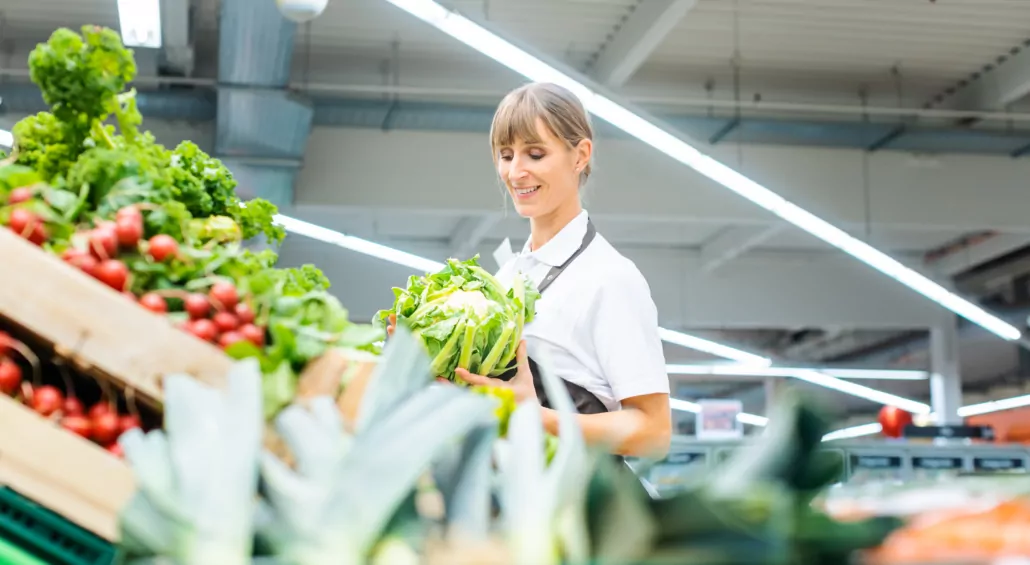How to Foster Stronger Supplier Relationships in a Post-Pandemic World
By Minos Athanassiadis
Vice President
April 13, 2021
Throughout the past year, the fresh produce industry experienced drastic change when the world was launched into a global pandemic. Across the food supply chain, many businesses had to adapt in order to continue supplying high-quality produce to consumers. As the industry starts to imagine what a post-pandemic world will look like, one thing is certain: relationships in the produce sphere matter. However, relationships between grocery retailers and suppliers are often not optimized for success, leading to friction, a lack of shared information to help suppliers improve performance, and all too often, less than perfect quality. So how can relationships improve to help both parties meet produce quality goals?
Build a partnership that can adapt.
Examine your current relationships with suppliers or retailers. What have historical interactions looked like? Are you aligned on values? Do you understand each other’s business needs? The most successful partnerships allow input from all stakeholders, leading to meaningful collaboration as the relationship grows. For Tony Stallone, Chief Merchant at Fresh Midwest, there are significant differences between supplier relationships in Europe and in the United States. He says that in Europe, “Everything is very open book, and everybody is trying to achieve a better-quality product and experience for the customer. The U.S. has to change their vendor relationship[s] to be more of a partnership versus bargaining-ship.”
A partnership with a strong foundation based on shared values and understood business objectives will also have an easier time adapting to change. Whether an adjustment needs to be made due to external stressors like weather events or COVID-19, or internal ones, a strong partnership will experience less performance fluctuation. Armand Lobato, opinion writer for The Packer writes, “Ultimately, at both ends are real human beings that not only value good working relationships but develop strong personal ties, trusting relationships that often develop into lifelong friendships. Do that, and in good times or bad…you’ve got someone you can count on.” As the industry emerges from the pandemic, quantifying past interactions with your suppliers can provide insight into how these critical working relationships can be improved upon.
Clear expectations help build trust and drive efficiency.
Are expectations for your new and existing suppliers clear? Does your supplier management strategy make it possible for suppliers to know where they stand? Greater transparency between retailers and suppliers helps build trust and makes it easier for retailers to communicate what changes their suppliers need to make. As performance is monitored, suppliers will also want to know where they stand. As McKinsey & Company writes, if they know what type of performance-management system they are a part of, such as one “that incorporates clear key performance indicators, performance dialogues, and reliable tracking tools,” they will be more inclined to accept feedback and make operational changes. You’ll get more out of your suppliers and make your collaboration process more efficient. Equipping retailers with supplier scorecards, a core feature of the iFoodDS quality management solution, can enable retailers to foster stronger supplier partnerships.
“The iFoodDS supplier scorecards provide transparency into quality and a common ground for suppliers and retail grocers and food service companies to work together in a data driven environment to improve quality,” says Todd Berg, VP of Product Management at iFoodDS.
Strengthen your procurement team.
Does your procurement team have the tools they need to make key decisions about suppliers? Do you have technology in place to make sure these decisions are timely and non-subjective? Your procurement team plays an important role in communicating expectations to suppliers, and the team should take time to understand the unique business goals and strategies of each of their suppliers. For James Braswell, Senior Director of Fresh Thyme Farmers Markets, having the “right” procurement tools in place when the pandemic hit helped Fresh Thyme effectively communicate to their suppliers what changes they needed. Braswell says, “When we needed to adapt post-COVID… they [suppliers] were able to actually accomplish many of the things we needed to adjust to.” Retailers with an agile procurement team who can advocate for both sides during an adjustment period will see stronger supplier partnerships form over time.
The more data, the better. When retailers have access to details of individual quality assessments and can aggregate this data into reports, they have the ability to rank their suppliers on product quality defects, seasonality issues, issues from certain geographical locations, and overall performance. This helps procurement teams source the highest quality products on a regular basis.
Give your suppliers the information they need to make continuous quality improvements.
Are you able to share historical, fact-based inspection data with your suppliers? Better yet, are you able to share it at a frequent cadence so your suppliers can course correct? Providing your suppliers with the data they need to improve the quality of their deliveries will enable them to up their game so you can ask more of them.
Are you able to share your data in real-time? With the iFoodDS DC Insights solution, suppliers receive instant email notifications when assessments are completed. This allows suppliers to address quality issues before their next shipment. With real-time data and reports that can be shared across the business and with external organizations, both retailers and suppliers will benefit. This also helps foster stronger partnerships because suppliers can better understand why their produce is being rejected or why a retailer is requiring improvements. When retailers go to sit down with their suppliers, they can present the supplier’s product quality data and have constructive conversations with suppliers. A wealth of quality data, collected through a single system such as DC Insights, combined with the retailer’s email assessment notifications allows both parties to look back over time to see why produce was accepted, accepted with issues, or rejected.
With an adaptable partnership aligned on values, clear expectations surrounding produce quality, a strong procurement team, and access to high-quality data, you can continue to build strong supplier partnerships that can withstand any external strains and carry on even stronger than before.
If these steps seem daunting, iFoodDS can help. Contact sales@iFoodDS.com or call 206.219.3703 to learn how our quality management solution can help you strengthen your supplier relationships and enable continuous operational improvements.





